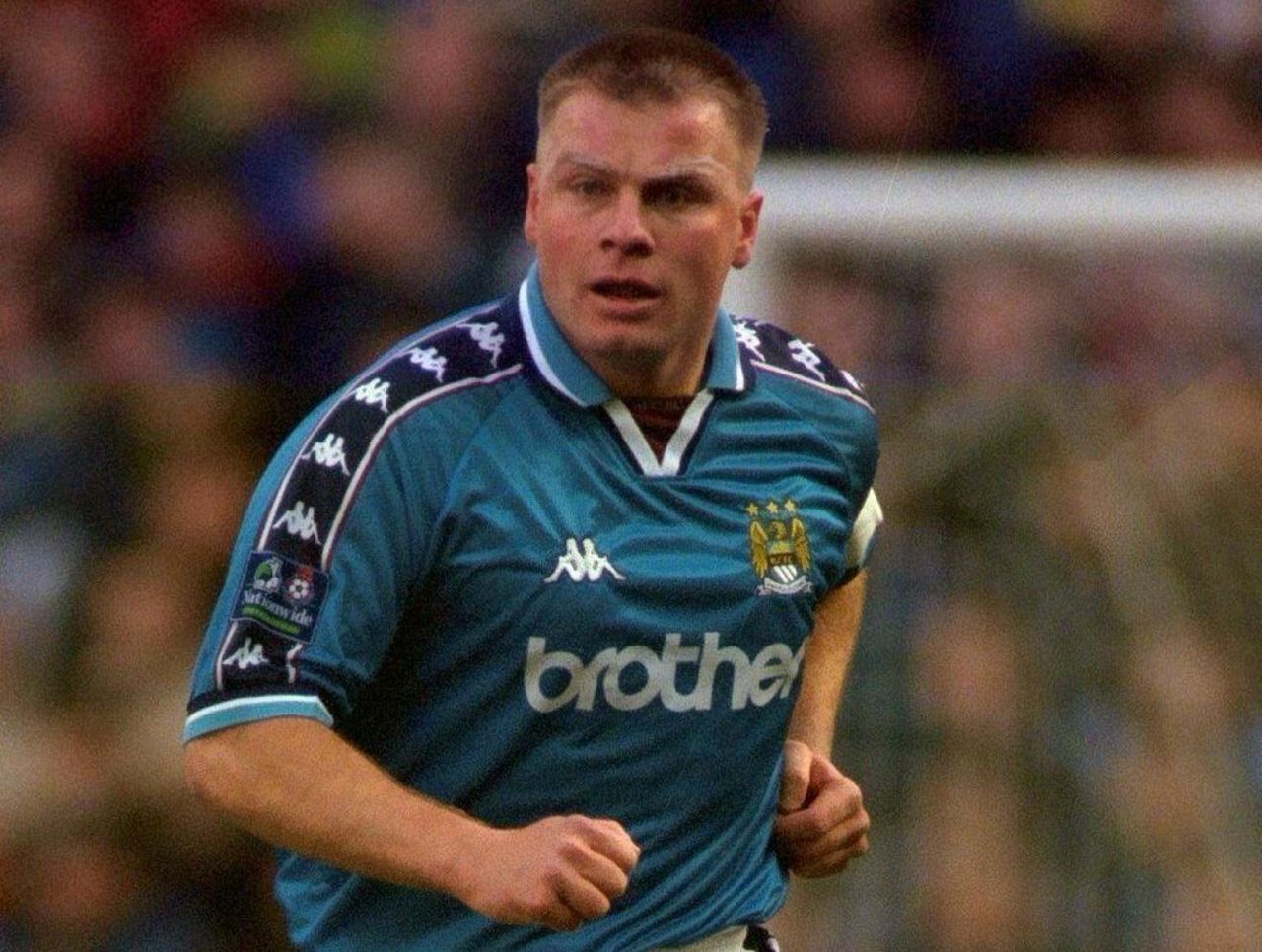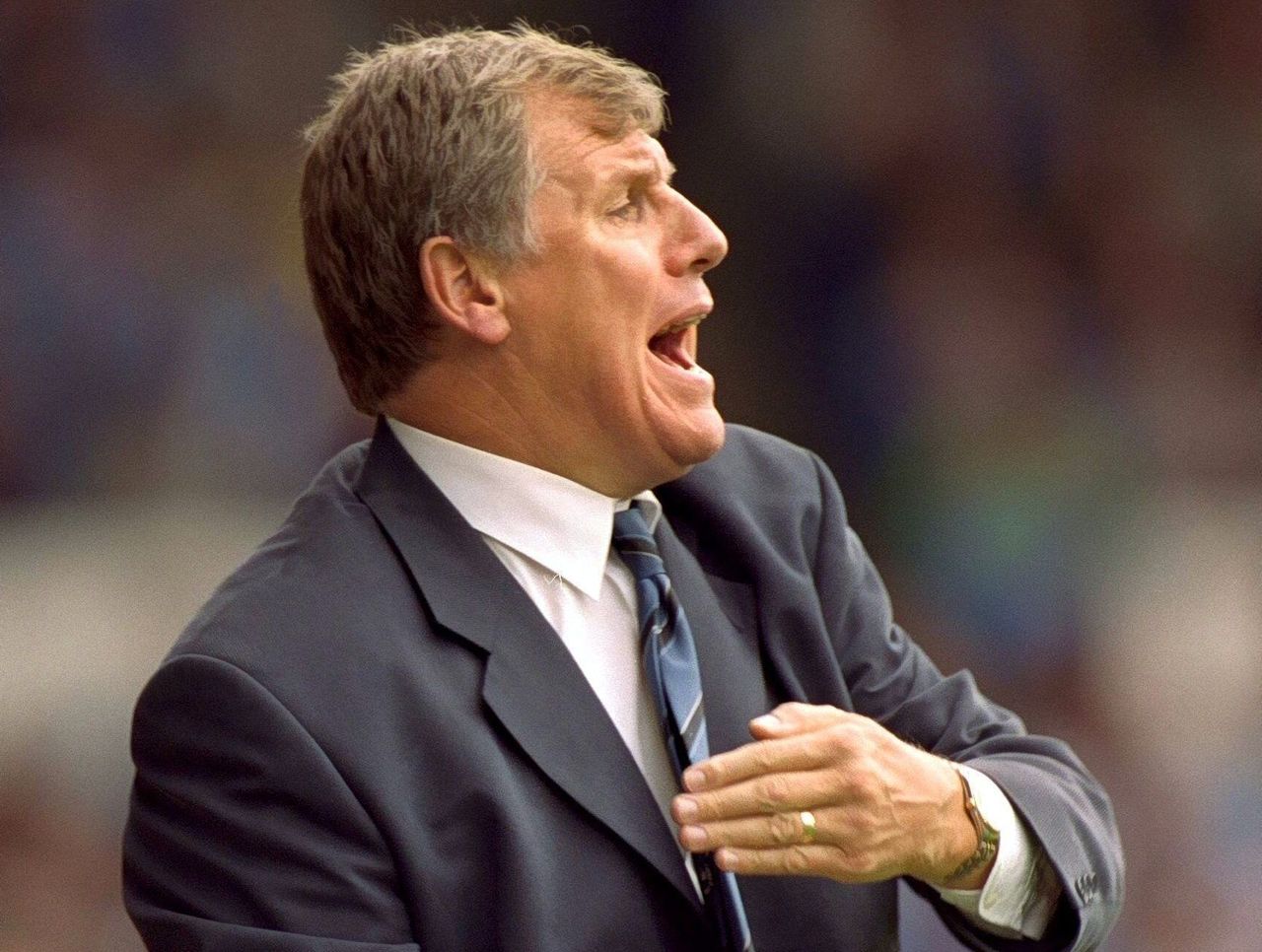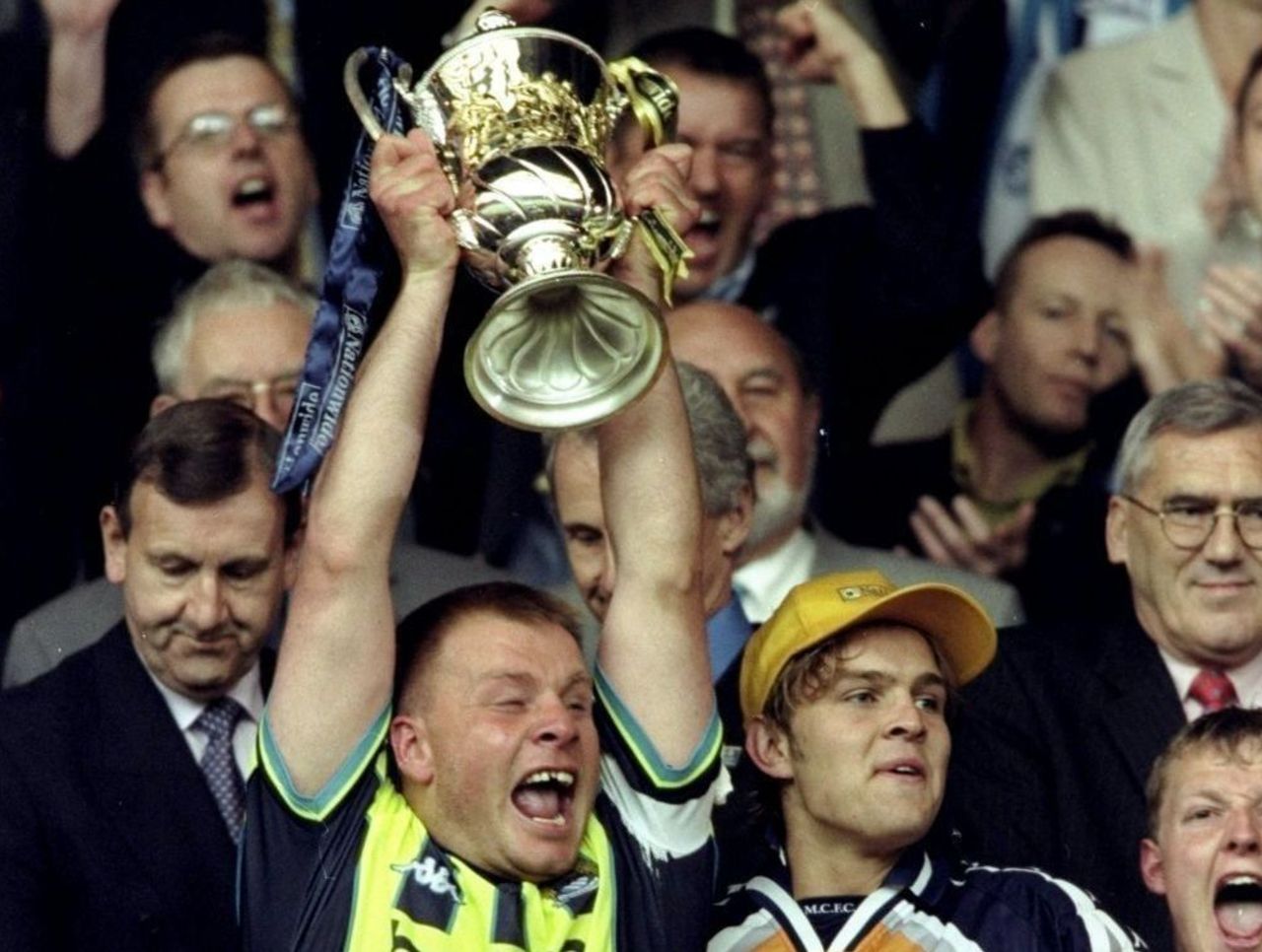How a dilapidated City restored parity in Manchester
There were times when the idea of a Manchester derby seemed implausible.
When Manchester City trudged off Notts County's inexplicably heavy August pitch in 1998, a point salvaged through the bumbling Bermudan striker Shaun Goater's last-ditch effort, the club sat 14th in the third tier. It was a demise that began in the late 1970s - courtesy of thoughtless expenditure under then-chairman Peter Swales and the arrogant antics of Malcolm Allison as manager - and ended on a peculiar day at Stoke City the previous May, when the Blues won 5-2 but still sunk to the lowest ebb in their history.
Soon after that 1-1 draw on the banks of the River Trent, Manchester United's players were waiting for a wholly different proposition: the draw for the Champions League group stages. Rather than the trips its neighbour had in store that season, to Blackpool's sagging Bloomfield Road and Colchester United's 6,320-capacity Layer Road, United booked dates at Barcelona's Camp Nou and Bayern Munich's Olympiastadion.
"The first thing that struck me about City was how quiet the dressing room was and how down everyone was. Everyone, that is, apart from Kevin Horlock who greeted me with, 'Christ, things must be desperate if we've brought you in,'" remembered Andy Morrison in his autobiography.

The heavy-set, alcohol-dependent defender initially joined City on loan. His previous club was Huddersfield Town, where he had just thrown manager Peter Jackson across his own office.
Just like £10.75-million Jaap Stam over at United, £35,000 Morrison was the foundation for better times - even if it was something as modest as an away win in Wrexham.
The most important goal in City's history
Three days after United paraded its unprecedented treble of the Premier League, FA Cup and Champions League in front of 500,000 in Manchester, the poorer relation headed down to Wembley for a playoff against Gillingham. City had been dragged from mid-table to the cusp of promotion, inspired by the new skipper Morrison. But the stakes were high: losing could've cost City its planned move to the 2002 Commonwealth Games stadium in Eastlands, and another campaign of being the team everyone wanted to beat in Division Two.
It seemed like the other 500,000 from the old Cottonopolis travelled via the M6 and M1 towards the old stadium's twin towers. Each petrol station had City fans tumbling out of buses, delirious at the prospect of seeing their side at Wembley and desperately trying to mask their nerves with copious amounts of lager. No quantity of cans could've prepared them for what was to come.
Left exposed by the enforced substitution of Morrison, who had played over an hour through injections despite requiring keyhole surgery in his knee, City was 2-0 down in the 90th minute. Horlock first pinged what appeared to be a consolation from 18 yards, but then a small, abrasive Scot delivered a strike that single-handedly changed the course of the club's future.
Following Paul Dickov's whack beyond Vince Bartram, the goalkeeper already named man of the match and the best man at the pint-sized striker's wedding, a shell-shocked Gillingham and exhausted City played out a largely uneventful extra-time.
Heroics from Nicky Weaver, a 20-year-old shot-stopper who was playing for Mansfield Town's reserves the previous season, in the shootout secured promotion. His subsequent catch-me-if-you-can celebration went down in City folklore.
He remembered in 2014.
I've no idea what I was doing but I just didn’t want it to end. I don't know where that stupid face came from. It was as though I was in a trance. Andy Morrison caught me. I'm not going to tell you what I said to him! There was a mass pile-on. It was brilliant, but it's caused me nothing but embarrassment since.
It was one of the greatest comebacks staged by an English team but, not to be outdone, United had completed a similar feat in the Spanish capital a few days earlier to become European champion.
Royle waive
Joe Royle remarkably led predominantly the same team to another promotion the next term, with Goater polishing his poaching up front to devastating affect. The Premier League return was ill-fated, however, with just one point taken from United and a journeyman squad looking drained in its immediate descent back into the second tier.

Royle controversially lost his job due to relegation, but Kevin Keegan's City then dominated in another top-flight return - spurred by the likes of Ali Bernarbia, Eyal Berkovic and, of course, Goater. Other managers flitted in and out of Maine Road and then the Etihad Stadium, as City continued to serve its unique cocktail of underwhelming inconsistency; until Sheikh Mansour filled the cobwebbed coffers with his oil money.
Some may attribute Abu Dhabi's influence or, more specifically, signings such as Carlos Tevez's (stolen from under the nose of United) or Sergio Aguero's as making the Manchester derby such a blockbuster event today, but the wheels were in motion long before that event.
If it wasn't for Morrison, Goater, Dickov, Weaver, and Royle, the move to Eastlands would've never happened. And, although Maine Road had its charms of the surrounding labyrinth of alleyways, The Parkside pub, and local kids offering to "mind your car" (i.e., not smash it in) during the game, it lacked the prestige required to attract the investment that changed the face of English football.
The once-impossible notion of a Manchester derby may have been achieved through a collective of heavy-drinking journeymen and youngsters, but they then unwittingly drew City on par with United later in 2008 by making the club a saleable asset in a ready-made fortress.
